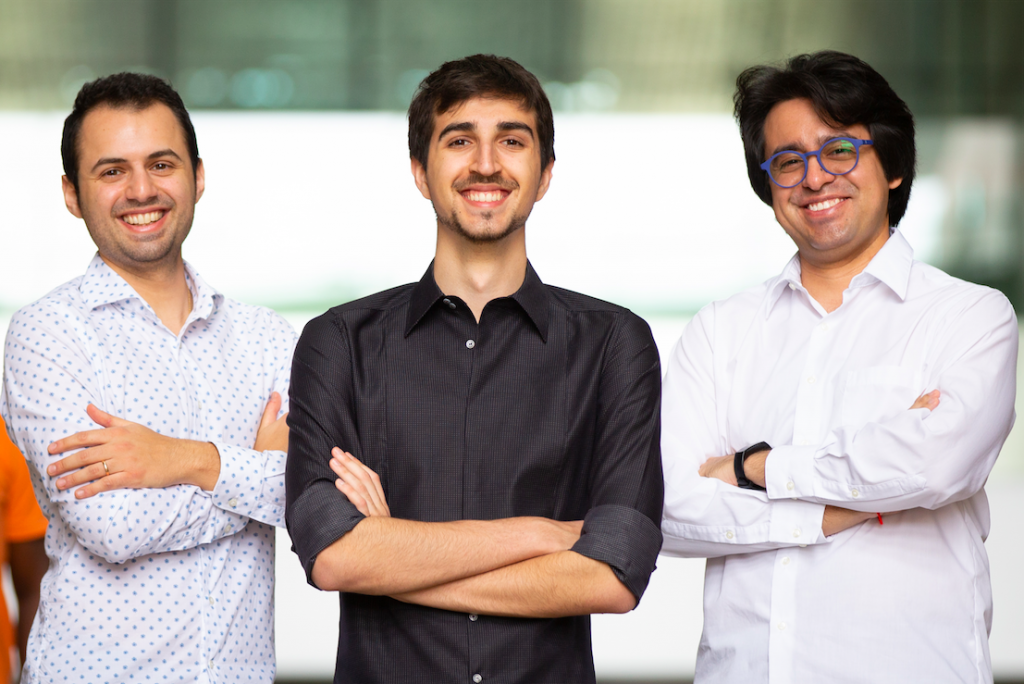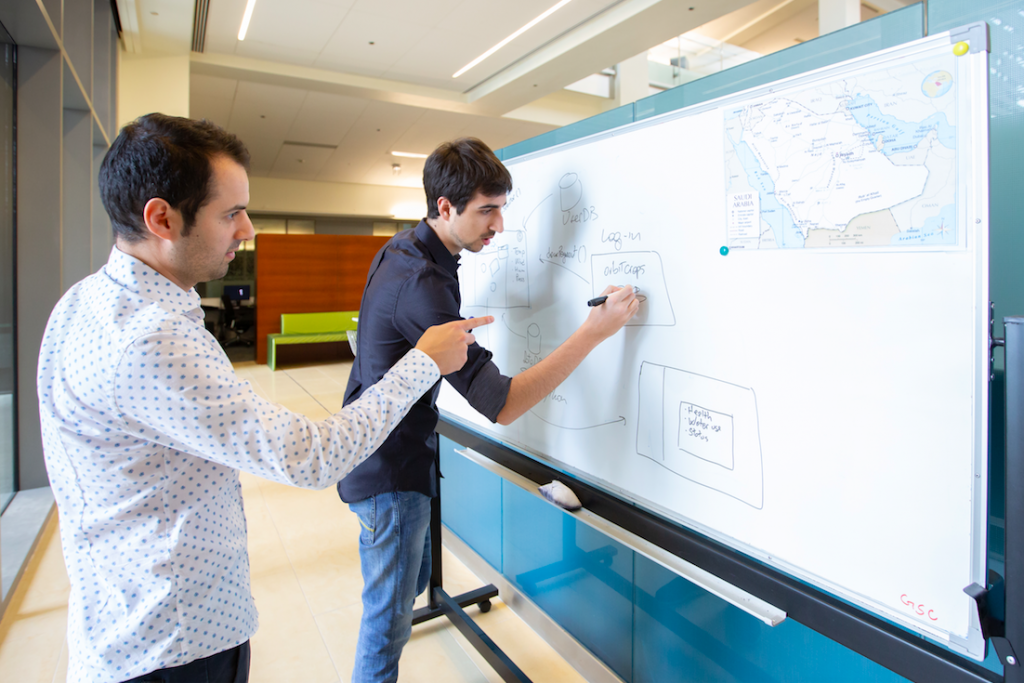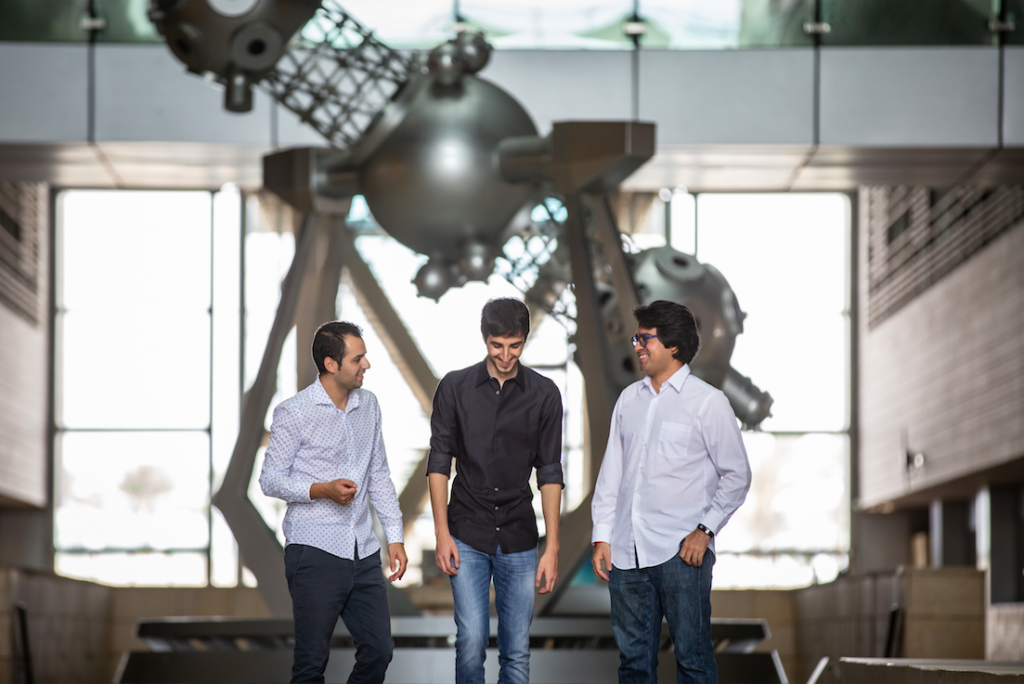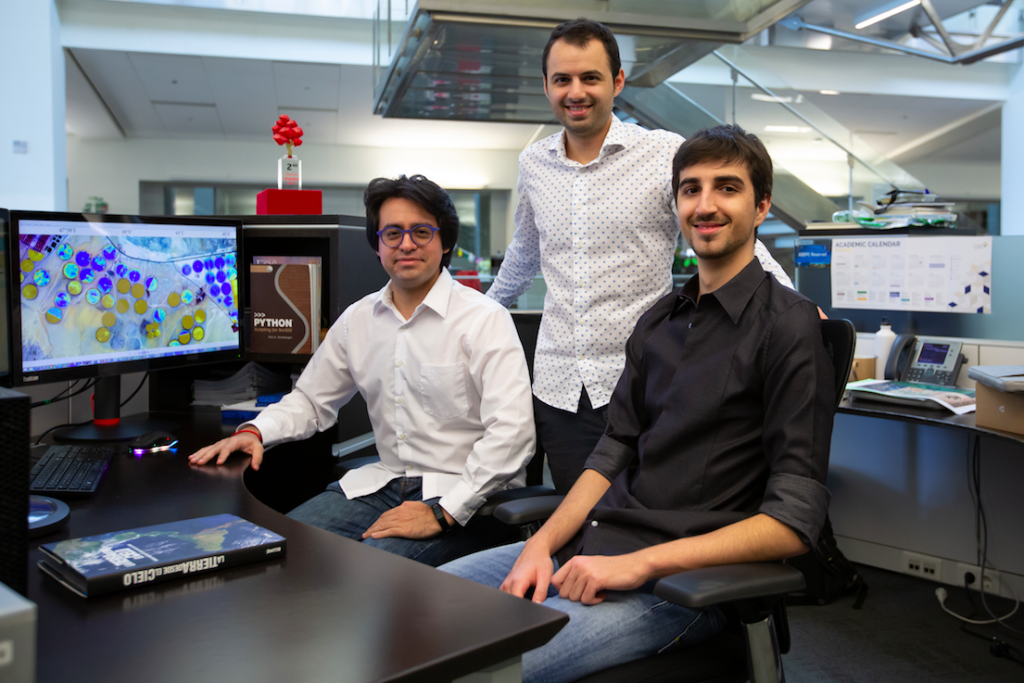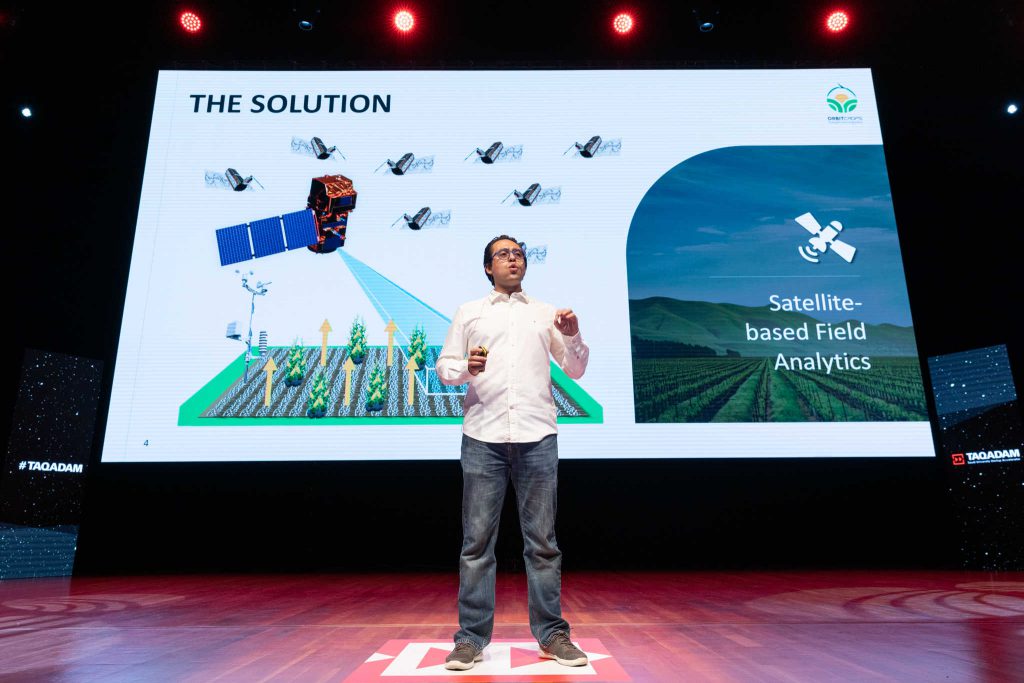KAUST startup helps maximize crop yield while optimizing resource efficiency.
| Challenges | Solution | Benefits |
| · 90% of the country’s limited water resources from non-renewable aquifers used for irrigation each year
· Soil salinity buildup from over-irrigation, requiring additional water to flush the salt out · Limited use of remote sensing to maximize crop yield and conserve resources |
· High-definition satellite-based field analytics including crop yield modeling, hydrological modeling, and evapotranspiration estimations | · Up to 50% water savings
· Up to 100% increased crop yield · Up to 30% reduction in fertilizer usage · Reduced soil salinity buildup · Accessible via mobile devices |
The Challenge: Maximizing Food Production in a Water-Stressed Country
“In a country with limited arable land and water resources,” explained Matteo Ziliani, Co-Founder and CEO of OrbitCrops, “it’s critical that we find a way to optimize today’s harvest while ensuring sufficient resources for future generations.”
Ziliani and fellow co-founder of OrbitCrops, Bruno Aragón, are both Ph.D. students majoring in Environmental Sciences and Engineering at King Abdullah University of Science and Technology (KAUST). Interested in crop yield modeling, hydrological modeling, and evapotranspiration estimation leveraging remote sensing using drones, they wanted to use their knowledge to help the Kingdom of Saudi Arabia.
During agricultural field trips across Saudi Arabia, Ziliani and Aragón noticed that—despite being a country challenged by water scarcity—there was limited use of remote sensing technologies to maximize crop yield while conserving resources. With experts estimating four-fifths of the Kingdom’s aquifer-based “fossil” water already depleted, leveraging technology to address inefficiencies presents a massive opportunity for the country.
The Startup: OrbitCrops
“Ninety percent of the total amount of water extracted from non-renewable aquifers each year is used for irrigation,” says Aragón, “with 60% of that being lost to evaporation. Since the only alternative water source is desalination and the cost is prohibitive, it’s critical for farmers to break with traditional agricultural methods and find ways to optimize their water usage.”
OrbitCrops, a TAQADAM Startup Accelerator 2019 graduate, offers farmers a new way to monitor their fields. Combining high-definition satellite imagery with data analytics, OrbitCrops software analyzes crop health against several parameters, including initial status, weather patterns, soil conditions, irrigation, and fertilizer usage. The software provides detailed visual information that would previously have been inaccessible based on the size of the fields and the limitations of ground-based observation.
The software identifies sectors of fields where crops are being either over- or under-irrigated or fertilized. Reports also include plant health and stress detection. Accessed via a flexible, subscription-based pricing model and using visual representations of their fields displayed on mobile devices, farmers can pinpoint areas and make the necessary adjustments to water and fertilizer application.
The Results: Increased Crop Yield, Resource Conservation and Recognition
Based on extensive tests over 5 years and involving over 2,500 acres of arable land, OrbitCrops offers a practical, cost-effective way to address the challenges arising from water stress. Each farmer’s fields are divided into zones, with data-driven water and fertilizer recommendations made at a granular level with corresponding results. The increased efficiencies show improvements in crop yield of up to 100%, water savings of up to 50%, and a reduction in fertilizer usage of up to 30%, providing farmers with significant cost savings while increasing profitability.
Also, careful water management reduces soil salinity, eliminating the need for additional irrigation to flush the salt out. Reduced water usage translates to less evaporation and wastage, and keeps the water in the underground aquifers for the posterity of future generations. Taking into consideration real-time and predictive weather, yield, and soil moisture forecasting, OrbitCrops’ advanced algorithms enable farmers to plan ahead based on reliable models, maximizing the efficiency of their fields while decreasing the use of scarce resources.
While similar solutions exist on the market, most of them are tailored to North American conditions and analyze limited data inputs. With their knowledge and expertise of agriculture in harsh, arid climates, OrbitCrops has a significant advantage in Saudi Arabia and other countries with similar climates and soil conditions.
The outcome of OrbitCrops innovation and impressive results was 2nd place at Startup Istanbul 2019. From over 100,000 applicants, 100 startups were chosen to present in front of the audience and judges. “We were very pleased to win 2nd prize,” says Ziliani, “since the other competitors’ ideas were very interesting.”
The Driving Force: KAUST’s TAQADAM Startup Accelerator
“OrbitCrops probably wouldn’t exist if it hadn’t been for the TAQADAM Startup Accelerator program,” states Ziliani. “And we certainly wouldn’t have won 2nd place at Startup Istanbul. The coaches, mentors, and seminars provided us with the encouragement and motivation to pursue our dream despite our heavy academic schedule.”
Having learned about the program from previous graduates who had launched startups—with excellent results—while at KAUST, Aragón and Ziliani decided to apply. After putting together a basic business plan based on their vision, ability to execute, knowledge of the competition, understanding of the target market, and attainable goals, OrbitCrops became a reality.
“The mentor assigned to us helped us to set and reach our goals, expand our business knowledge, and perform sanity checks to make sure we weren’t straying too far from our original objectives,” adds Aragón. “He was also invaluable when it came to providing contacts and opening doors. It enabled us to establish critical relationships with technology companies, government ministries, and the farmers who participated in the trials.”
“Although we’ll need to expand to other markets to create a sustainable business model based on the volume of arable land, our short-term goal is to use what we’ve developed to help the Kingdom,” says Ziliani in conclusion. “Farmers can, at times, be hesitant when it comes to trying new things. We believe that, if we can gain mindshare based on our successes, things will change over time.”
Learn about TAQADAM Startup Accelerator Program
Discover the KAUST Research and Technology Park
Apply for venture funding from the KAUST Innovation Fund

